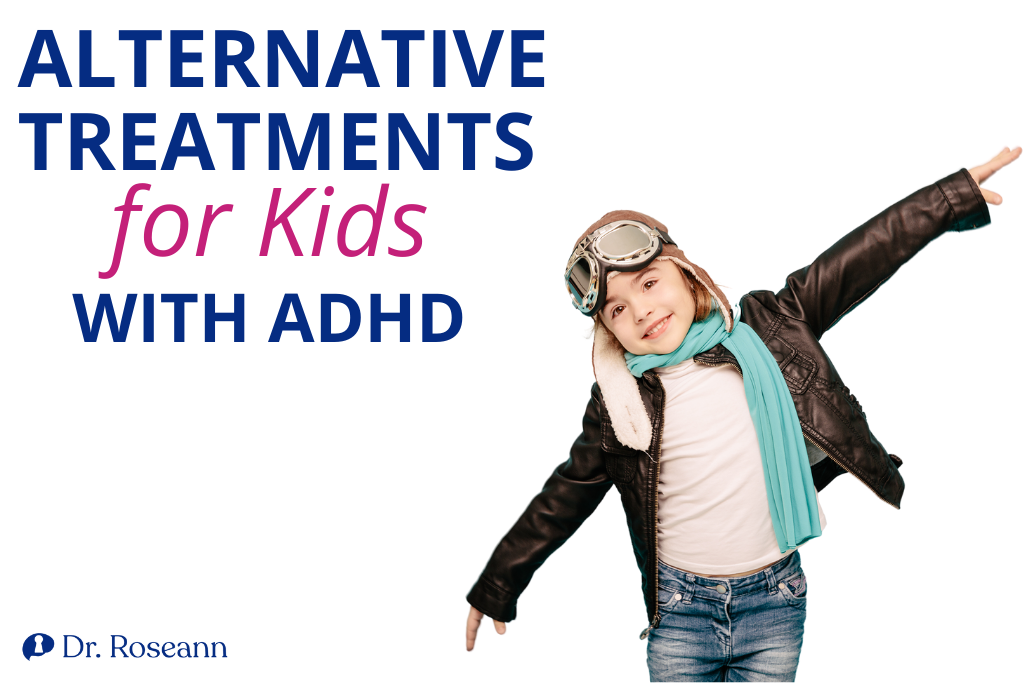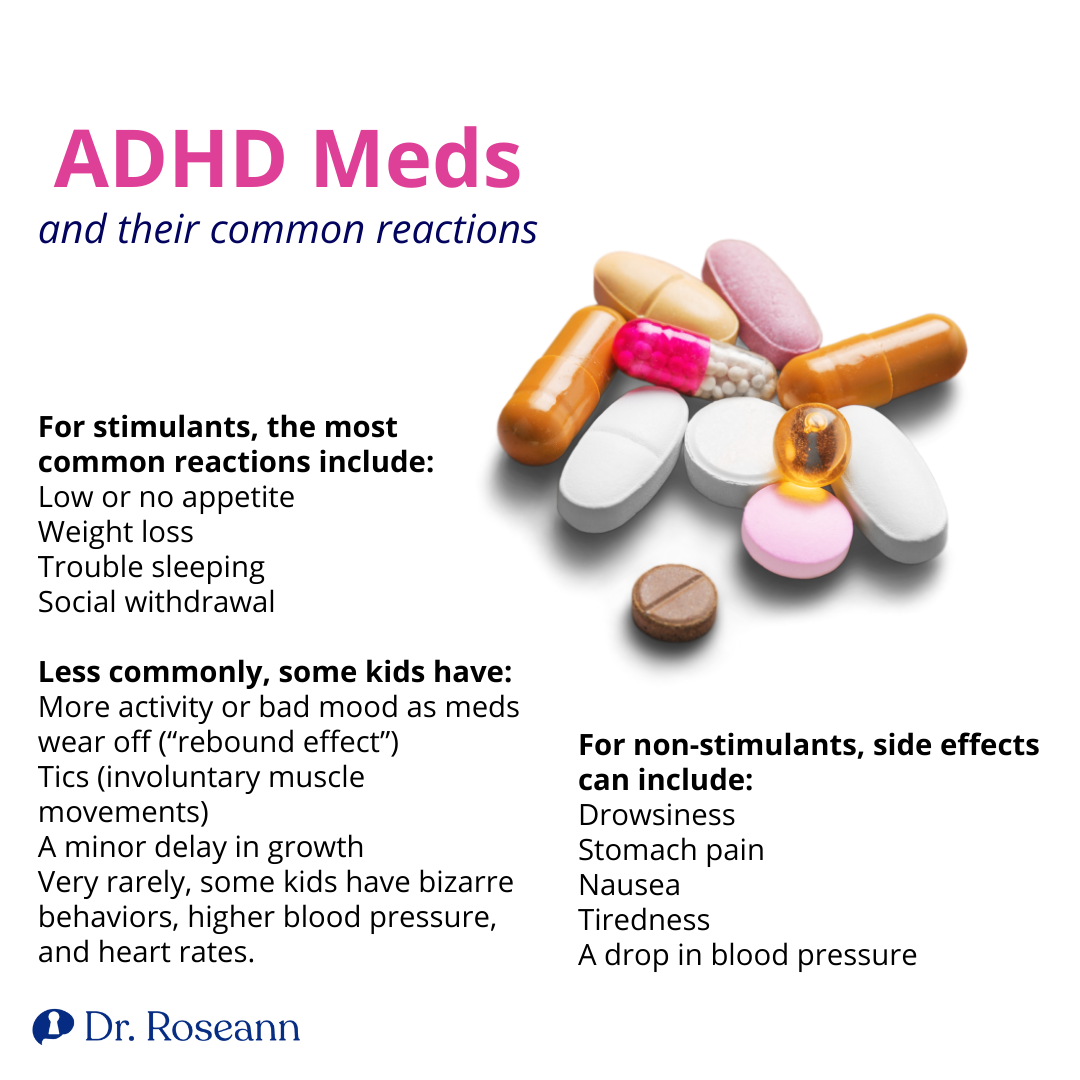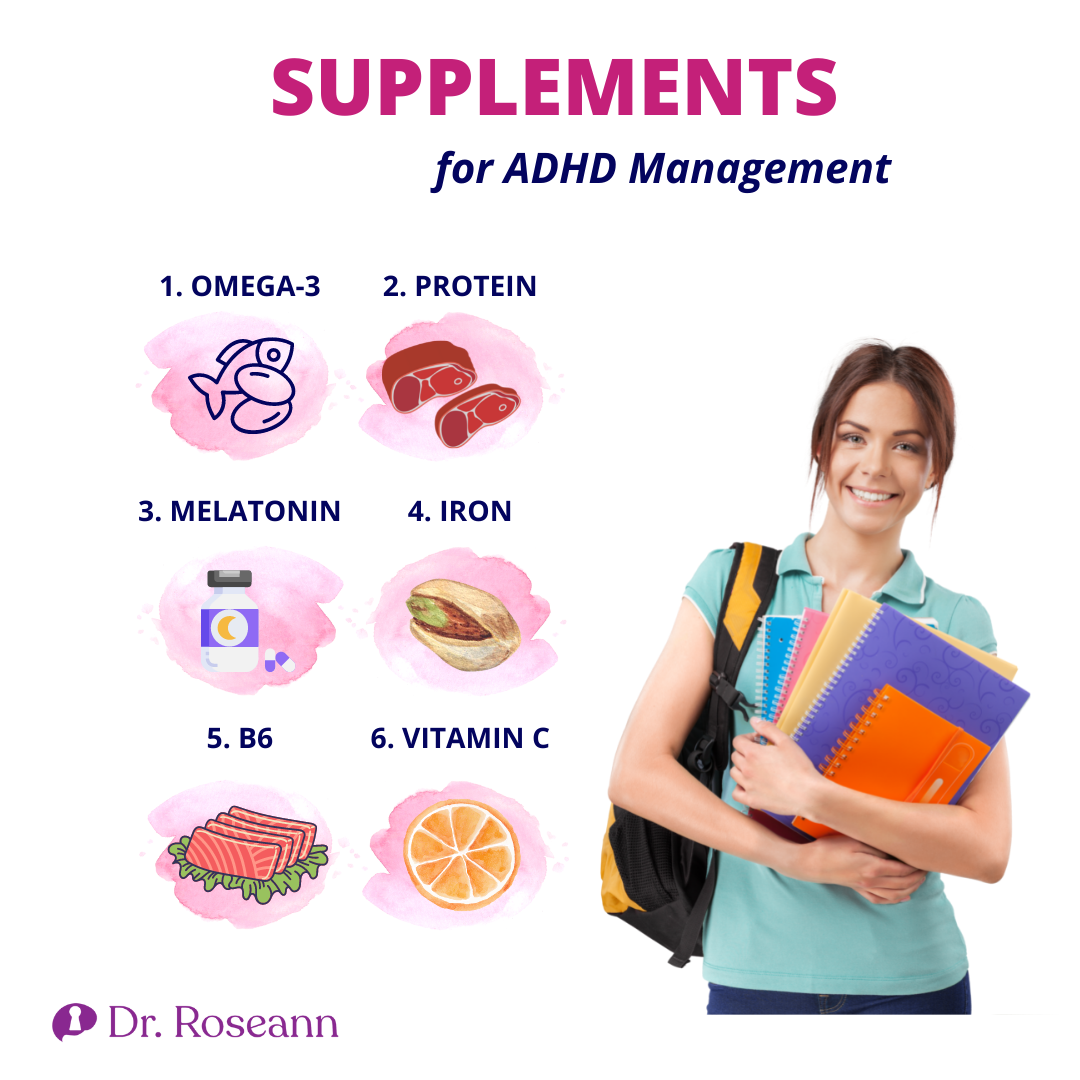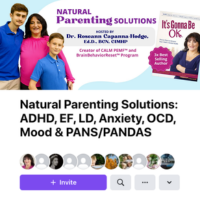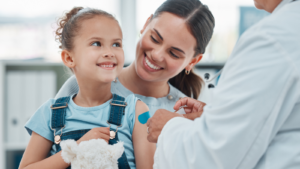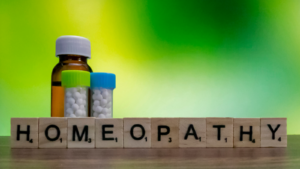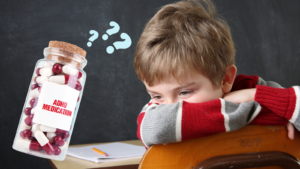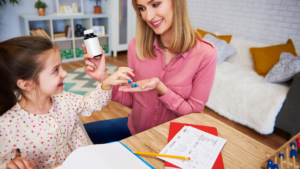Attention-Deficit Hyperactivity Disorder (ADHD) is a chronic neurological disorder characterized by inattentiveness, hyperactivity, impulsiveness, and difficulty in simple tasks. Children with ADHD may struggle to keep up in school and relate with other children.
To address ADHD, some physicians prescribe medications that improve focus and self-control. Adderall is one of the top ADHD medications. The combination medication works by changing the amounts of natural substances in the brain.
While these drugs may provide relief for four to six hours, they may also have long-term physical and emotional side effects and may cause dependence and withdrawal symptoms.
Thus, it is essential to consider medicine only as a last resort after exhausting evidence-based natural treatments that include diet and behavioral therapies. They are as effective without the side effects.
What's Going on Under the Hood?
According to medical research, people with ADHD tend to have “cortical slowing.” This means an elevation of low-frequency theta waves and a reduction of higher frequency beta waves in the prefrontal cortex.
Cortical slowing can be measured using a QEEG brain map, with up to 89% accuracy in diagnosing ADHD. The standard behavioral rating scale is only 47-58% accurate.
This deviation in the way their central nervous system works hinder their ability to pay attention and may cause ADHD symptoms such as impulsiveness and hyperactivity.
- It is common for people with ADHD to have difficulty navigating through tasks. They can't see the end-game, so they lose interest when boredom sets in.
- People with ADHD forget things because they don't pay attention in the first place.
- Their brain is on slow alert when bored, so focus is difficult.
It is essential to understand that people with ADHD have poor impulse control. They deviate toward fun, pleasurable, and comfortable things, and it's more difficult for them to reign themselves in. They can say the wrong things and make decisions without considering the long-term consequences.
Adderall
To address ADHD, some physicians prescribe medications to enhance focus and self-control. Adderall is one of the top ADHD medications. The combination medication Amphetamine/Dextroamphetamine works by changing the amounts of natural substances in the brain.
It is a stimulant that increases one's ability to pay attention, stay focused on an activity, and control behavior problems. It may also organize one's tasks and improve one's skills.
This medication is commonly used to treat narcolepsy and help those with sleep disorders stay awake during the day.
Adderall and other stimulants provide relief for four to six hours, but they may also have long-term physical and emotional side effects such as depression.
Thus, it is essential to consider medicine only as a final option after trying out all the available evidence-based natural treatments, including diet and behavioral therapies.
ADHD Drugs and their Long-Term Consequences
There are two types of ADHD medication: stimulant medication and non-stimulants.
Children who take stimulants can focus better, control their impulses, and avoid risky behaviors. These drugs raise the level of dopamine, the brain chemical associated with pleasure.
Non stimulants increase the levels of norepinephrine, which improves focus, reduces impulsiveness and promotes calmness.
There is no one-size-fits-all answer when it comes to taking medication for ADHD. Some people may only need to take medication for a short period, while others may need to take it much longer.
ADHD medications can have different effects on different kids. For some, the effects of stimulants can kick in within an hour. Others may have to wait a couple of weeks for non-stimulants to start working. And side effects from the drugs can last anywhere from 3 hours to 24 hours. However, long-term side effects are possible.
The American Academy of Pediatrics recommends that children with ADHD wait until six years old to start medications. The FDA has not approved Ritalin for children under six years old.
These medications can come with side effects that range from mild to serious.
For stimulants, the most common reactions include:
- Low or no appetite
- Weight loss
- Trouble sleeping
- Social withdrawal
Less commonly, some kids have:
- More activity or bad mood as meds wear off (“rebound effect”)
- Tics (involuntary muscle movements)
- A minor delay in growth
- Very rarely, some kids have bizarre behaviors, higher blood pressure, and heart rates.
For non-stimulants, side effects can include:
- Drowsiness
- Stomach pain
- Nausea
- Tiredness
- A drop in blood pressure
Some recent research suggests that children taking stimulants into adulthood may grow up slightly shorter.
Case Study: From Medicines to Alternative Treatment
In the Book “It's Gonna Be Okay” by Dr. Roseann Capanna-Hodge, Jack was a brilliant boy with zero motivation.
High School was difficult because he couldn't rely solely on his intelligence. He had to turn stuff in, and his parents would find his homework crumpled at the bottom of his bag. They tried guiding him and hiring a tutor, but nothing worked.
To better equip him for college, his parents brought him to a doctor, and he went on to try one medication after another. However, the medications didn't help in school in the long run, and his mental health declined. He became depressed and experienced sleep problems.
Jack's mom reached out to a friend and discovered a therapy called Neurofeedback.
With the brain map, it became clear what was interfering with Jack's attention and executive functioning. Despite his intelligence, Jack had difficulty finishing tasks because it took time for him to process things. He lagged behind other kids and was demotivated.
Jack began Neurofeedback and worked with an executive function coach who showed him how to think differently about starting a task. She broke down the process, teaching him to visualize the end product and work backward.
Neurofeedback, coupled with guidance, produced some dramatic changes. Within weeks, Jack's Science teacher reported that Jack was paying attention in class and was getting A's and B's!
Finally, Jack went to college, graduated, and now is in graduate school. Jack. He is now self-confident, independent, and, most importantly, happy.
A Holistic Approach to Healing
Americans take pills for almost everything — from headaches to constipation and cancer. Some pills work. Others only slow down our symptoms. There's a pill for about every problem Americans face. But the side effects!
However, because drugs are effective and convenient, people and doctors take for granted alternative cures, including diet, exercise, genetics, and surroundings.
These four things matter because while drugs can be a band-aid solution, diet, exercise, genetics, and the environment may address the cause of the problem and lead to overall good health and long-term healing.
This is true for physical conditions such as high blood pressure, diabetes, heart attacks, and cancers. Americans with these conditions grew in number within the last century—since the introduction of Fast Food. The higher amount of sugar in food since the Industrial Revolution and high levels of sodium and fat in fast food are linked to the four killer diseases. And we need to turn back the clock.
What is true for physical health is also valid for mental health. Just as junk food can destroy our physical health, excessive screen time permeates our mental health. The number of school-aged children with ADHD has gone up in recent years— and this is linked to sugar-filled drinks and prolonged exposure to gadgets.
A UK study discovered that children who played video games for more than three hours a day were twice as likely to be diagnosed with ADHD.
Case Study: Dietary Intervention as ADHD Cure
Karen has done everything to help her son focus better. Ben was given a front seat in the classroom. Teachers reminded him to pay attention and gave him extra time on tests.
Ben has been taking a long list of ADHD medications that offered little success but serious side effects.
Ben's meds initially helped him focus in school. But after a few weeks, he stopped eating during the day, and his sleep patterns became erratic. Sweet Ben vanished, and a punchy and snarky version of him appeared.
For the two years, Ben and Karen bounced from one medication to another until Karen got into a discussion regarding diet, supplements, lifestyle changes, and alternative treatment options.
They started by reducing gluten and dairy. Additional supplements and nutrients were added to Ben's food intake as recommended by a Functional Pediatrics specialist. Ben demonstrated improved focus. He was listening in school and could act more independently at home.
Karen was impressed with Ben's growth and explored more alternative treatments until she discovered Neurofeedback, which supercharged Ben's health journey.
With Neurofeedback, Ben's brain was trained to act healthier, and he became less distractible. He followed directions and was no longer zoned out. The grades improved without any side effects.
The positives didn't stop there. Ben was humming, snuggling again. Best of all, he felt proud of himself.
Your Choice to Improve the ADHD Brain
When you're ready to take a more natural approach to your child's health, read this part for a list of diets, nutrition, and supplements. Always consult a physician before starting any supplement regime, as they can offer specific dosages and advise on possible drug interactions.
Natural Supplements for ADHD Diet
When someone struggles with focus and impulse control, there are always nutrient deficiencies and difficulties with nervous system regulation that can support the brain naturally. That's why direct nutrient supplementation can be so powerful in enhancing brain function.
Whether supporting serotonin deficits, vitamin deficiencies, or just trying to make your nervous system healthy, supplements are a natural and effective way to help people think more clearly, follow directions better, and get work done. There are several cognitive enganchers that help the brain:
- Omega-3 Fatty Acids – Omega-3 fatty acids are essential nutrients for proper brain and nerve cell function. Unfortunately, our bodies cannot make these essential nutrients, and people rarely get enough of them through their diet. To ensure getting adequate Omega-3, look for a supplement with an EPA amount two to three times the DHA amount.
- Protein-Rich Diet – A protein-rich diet can be highly beneficial for children with ADHD. Protein prevents blood sugar surges that lead to hyperactivity. Introducing vegetables, fruits, legumes, and whole grains into the diet can also help to stabilize a child's energy levels. It is essential to have protein every two to three hours and never go more than four hours without protein to keep blood sugar stable to aid in focus.
- Melatonin – A good night's sleep is vital for everyone. However, children struggling with ADHD often experience erratic sleep patterns. Melatonin is a hormone secreted at night by the pineal gland and is needed to regulate the sleep-wake cycle. Research indicates Melatonin improves sleep for those with ADHD. Long-term studies have shown that Melatonin is effective over time and when children get a good night's sleep, so do their parents and caregivers.
- Iron – Iron is essential in creating neurotransmitters, such as serotonin, norepinephrine, and especially dopamine. Dopamine imbalance can lead to muscle and behavioral problems. The number of dopamine receptors in the brain correlates with the iron levels in the brain.
- B6 – B vitamins contribute to a healthy nervous system. They help improve attention and executive functioning. B-6, for example, helps to produce neurotransmitters such as serotonin. Balancing levels of dopamine and serotonin is crucial for attentiveness and calming hyperactivity.
- Vitamin C – Apart from being an antioxidant that every child needs in their diet, the ADHD child can benefit from additional amounts of this building block of the neurotransmitters.
- Magnesium – Is the workhouse of the brain and body because it is needed for over 300 functions in the brain and body. It has been shown to calm the brain, improve focus, and reduce impulsiveness.
Other Natural Remedies For ADHD
- Exercise – Exercise isn't just a great way to relieve stress and improve your mood—it can also help ease symptoms of ADHD and reduce impulsive behaviors. That's because moderate exercise increases dopamine levels in the brain, as well as serotonin and norepinephrine. So even something as simple as a half-hour walk three or four days a week can make a big difference for kids with ADHD.
- Read The Ingredients – Even the healthiest looking snacks can be loaded with colorings and preservatives that are believed to increase hyperactivity. ADHD children can benefit from avoiding artificial colorings such as Red No. 40, Yellow No. 6, Yellow No. 10, and Yellow No. 5.
ADHD Treatment Without Medication
- Behavioral Therapy – A wide range of therapies for children and adolescents fall under behavior therapy, but most if not all of them function on a similar principle. Behavioral therapists reward children for desired or appropriate behaviors while ignoring inappropriate or unwanted behaviors. The theory is that the reward encourages the child to repeat the appropriate behavior, and less desirable behaviors will go.
- Neurofeedback – Also referred to as “Brain Training” programs for ADHD, this is a non-invasive, medication-free therapy. Neurofeedback is the equivalent of taking your brain to the gym to work out. Initially, the therapist will create a brain map that compares the child's brain to brain wave patterns in the database. This facilitates an individualized treatment plan.
- Expressive Art Therapy – Based on the principles of therapeutic play, this therapy employs drawing, painting, and other forms of expressive play in which the therapist helps children address issues with managing behavior, interpersonal skills, and self-awareness. When used as part of a broader treatment plan, this therapy can reduce stress, ease emotional difficulties, and help kids develop self-regulation skills.
- Executive Functioning Therapy – The seven Executive Functions are Adaptable Thinking, Planning, Self-Monitoring, Self-Control, Time Management, Organization, and Working Memory. They support complex cognitive functions. Without it, any task requiring planning, organization, memory, time management, and flexible thinking becomes challenging.
Intermittent Fasting as Treatment of ADHD?
Like other elimination diets, Intermittent Fasting may offer benefits for some adult ADHD patients. Some research suggests that eliminating certain foods may also help children and teens with ADHD. However, it is important to note that children under 18 should not follow intermittent fasting.
- It is a strict and structured routine that may appeal to those who have ADHD.
- The eating-feeding window is a simple routine to follow.
- Eating healthier always has benefits for mental and physical health.
The key to intermittent fasting and ADHD is that it teaches one to focus on nutrient dense foods that improve the gut-brain connection. By improving the gut-brain connection through diet, we increase the neurotransmitter serotonin, which has been shown to alleviate focus, depression and anxiety symptoms. Everyone of all ages can benefit from a diet filled with nutrient dense foods that power the brain and body.
Most adults with ADHD who are obese, are so due to their emotional eating habits and impuslivity. Intermittent fasting can help them lose weight and improve their overall health.
Does Intermittent Fasting Improve Focus?
ADHD intermittent fasting involves going without food during the fasting period, which improves your mental fortitude and concentration. This occurs because of a body process called autophagy, where the body cleans the waste products of the cells.
Another reason is IF causes the body to reach ketosis, a state where it starts burning fat for energy and the regulation of blood sugar. Moreover, your body is more likely to burn fat for fuel since it does not have carbohydrates.
Intermittent fasting encourages eating healthier during feeding times and increasing the amount of nutrients in the body. Fats, consistent protein, and a variety of fruits and vegetables are key to getting nutrients to the rand gut. That gut-brain connection is critical for neurotransmitters, as 95% of serotonin is formed in the gut.
Fasting also increases neurotransmitters, and these may help improve symptoms of ADHD.
There are many practical and proven ways to help you be more focused. Listen better, be more organized, and finish things! ADHD and fasting may not be something one has thought of but the benefit of ADHD intermittent fasting is it really powers up the brain with nutrient dense food, improves the gut-brain connection, and turns of the cellular cleaning process.
Each person's needs are unique and deserve an individual approach but starting with a QEEG brain map is the best way to know what you or your child needs.
Citations:
Capanna-Hodge, Roseann (2021), It's Gonna Be Okay!
https://www.itsgonnabeok.com/book-landing-page1616094622787
WebMD (2022), Adderall
https://www.webmd.com/drugs/2/drug-63163/adderall-oral/details
WebMD (2022), Short- and Long-Term Use of ADHD Meds in Kids
https://www.webmd.com/add-adhd/childhood-adhd/adhd-kids-med-use
Do Fasting (2022), Would ADHD Improve With Intermittent Fasting?
https://dofasting.com/blog/would-adhd-improve-with-intermittent-fasting
Hill Learning Center (2022), 7 Executive Functioning Skills Your Child Should Have
https://www.hillcenter.org/7-executive-functioning-skills-your-child-should-have/
National Library of Medicine (2022), A cross-sectional analysis of video games and attention deficit hyperactivity disorder symptoms in adolescents
https://www.ncbi.nlm.nih.gov/pmc/articles/PMC1635698
Always remember… “Calm Brain, Happy Family™”
Are you looking for SOLUTIONS for your struggling child or teen?
Dr. Roseann and her team are all about solutions, so you are in the right place!
There are 3 ways to work with Dr. Roseann:
You can get her books for parents and professionals, including: It’s Gonna Be OK™: Proven Ways to Improve Your Child’s Mental Health, Teletherapy Toolkit™ and Brain Under Attack: A Resource For Parents and Caregivers of Children With PANS, PANDAS, and Autoimmune Encephalopathy.
If you are a business or organization that needs proactive guidance to support employee mental health or an organization looking for a brand representative, check out Dr. Roseann’s media page and professional speaking page to see how we can work together.
Dr. Roseann is a Children’s Mental Health Expert and Licensed Therapist who has been featured in/on hundreds of media outlets including The Mel Robbins Show, CBS, NBC, PIX11 NYC, Today, FORBES, CNN, The New York Times, The Washington Post, Business Insider, Women’s Day, Healthline, CNET, Parade Magazine and PARENTS. FORBES called her, “A thought leader in children’s mental health.”

She coined the terms, “Re-entry panic syndrome” and “eco-anxiety” and is a frequent contributor to media on mental health.
Dr. Roseann Capanna-Hodge has three decades of experience in working with children, teens and their families with attention-deficit hyperactivity disorder (ADHD), autism, concussion, dyslexia and learning disability, anxiety, Obsessive Compulsive Disorder (OCD), depression and mood disorder, Lyme Disease, and PANS/PANDAS using science-backed natural mental health solutions such as supplements, magnesium, nutrition, QEEG Brain maps, neurofeedback, PEMF, psychotherapy and other non-medication approaches.
She is the author of three bestselling books, It’s Gonna Be OK!: Proven Ways to Improve Your Child's Mental Health, The Teletherapy Toolkit, and Brain Under Attack. Dr. Roseann is known for offering a message of hope through science-endorsed methods that promote a calm brain.
Her trademarked BrainBehaviorResetⓇ Program and It’s Gonna be OK!Ⓡ Podcast has been a cornerstone for thousands of parents facing mental health, behavioral or neurodevelopmental challenges.
She is the founder and director of The Global Institute of Children’s Mental Health, Neurotastic™Brain Formulas and Dr. Roseann Capanna-Hodge, LLC. Dr. Roseann is a Board Certified Neurofeedback (BCN) Practitioner, a Board Member of the Northeast Region Biofeedback Society (NRBS), Certified Integrative Mental Health Professional (CIMHP) and an Amen Clinic Certified Brain Health Coach. She is also a member of The International Lyme Disease and Associated Disease Society (ILADS), The American Psychological Association (APA), Anxiety and Depression Association of America (ADAA) National Association of School Psychologists (NASP), International OCD Foundation (IOCDF).
© Roseann-Capanna-Hodge, LLC 2023
Disclaimer: This article is not intended to give health advice and it is recommended to consult with a physician before beginning any new wellness regime. *The effectiveness of diagnosis and treatment vary by patient and condition. Dr. Roseann Capanna-Hodge, LLC does not guarantee certain results.

